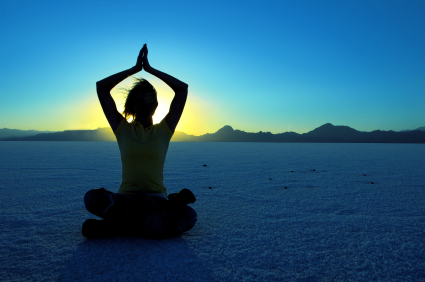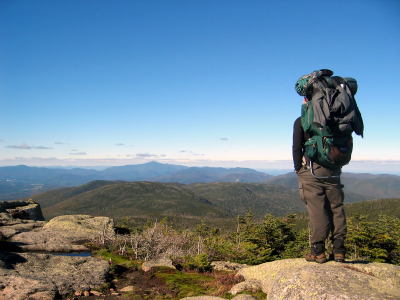|
Some psychologists and counsellors are prescribing a long walk in the woods, a fishing trip, or a day's canoeing to combat stress, improve mood and boost self-esteem. Some have been doing it for years. And they're not alternative, hippy 'crack-pot' practitioners either. Scientific evidence is on their side. Recent studies draw the same conclusions that anyone who has hit the hiking trails when feeling stressed might have drawn. Nature is good for you (psychologically speaking).
Not only is nature good for your mental health, but a lack of it might be detrimental. I was struck by the results of the 2009 "Green Exercise and Green Care" report by the Centre for Environment and Society at the University of Essex (UK). Study participants were split into two groups. One group was sent off for a walk in natural settings (around woodlands, grasslands and lakes), and the other was sent to walk around an indoor shopping mall. After the outdoor walk 92% felt less depressed. After the indoor one, not only did a significant percentage feel no change in mood, but 22% felt more depressed than before.
 So much for the oft-repeated advice that exercise is a universal mood improver. Don't get me wrong. Exercise can improve mood, but there certainly seems to be mounting evidence that not all exercise is equal, at least if it's mental health and overall well-being that we're measuring.
So much for the oft-repeated advice that exercise is a universal mood improver. Don't get me wrong. Exercise can improve mood, but there certainly seems to be mounting evidence that not all exercise is equal, at least if it's mental health and overall well-being that we're measuring.
Many Americans, like many people all over the Western world, live an increasingly urban lifestyle. Even small towns tend to have indoor malls, indoor leisure activities and a lot of the urban trappings we used to associate with bigger towns and cities. If you do live in a big town or city, it's even more difficult to get your nature fix, but it's still possible.
Here are a few tips for getting more nature into your everyday life.
Don't think you have to have a whole day or even a weekend in the wilderness. Jules Petty and Jo Barton recently published study results in Environmental Science and Technology that indicate mood and self-esteem improve after just a five minute dose of nature.
 Don't think you have to go extreme. Your local town or city park can work well if you don't have access to 1000 square acres of wilderness, and it's certainly easier to access in your lunch hour.
Don't think you have to go extreme. Your local town or city park can work well if you don't have access to 1000 square acres of wilderness, and it's certainly easier to access in your lunch hour.
Throw a lake, stream or pond into the mix if you can. The Petty/Barton results indicated that people felt most benefit after "blue-green exercise," a walk in a natural area adjacent to water.
Multi tasking is allowed. Getting back to nature can be a solitary commune, but exercise itself can also boost mood and so can social contact. Combine a walk in nature with a good friend and you've got a three-pronged attack on the blues.
 Make your own back yard a natural haven. This isn't always possible but if you have even the tiniest scrap of land to call your own, then make it as natural as possible. Consider some pretty plants (maybe the kind that attract bees and butterflies), a bird feeder, some nuts to lure the squirrels - whatever works for you and makes you feel in harmony with nature. Then remember to hang out outside your own back door regularly.
Make your own back yard a natural haven. This isn't always possible but if you have even the tiniest scrap of land to call your own, then make it as natural as possible. Consider some pretty plants (maybe the kind that attract bees and butterflies), a bird feeder, some nuts to lure the squirrels - whatever works for you and makes you feel in harmony with nature. Then remember to hang out outside your own back door regularly.
Consider a bigger wilderness excursion when you have time. A weekend's camping, or even just a day trip to your local state park, could fuel you up with feel good hormones for a while.
You often hear people referring to a certain food or herbal remedy as 'nature's Prozac'. But maybe nature itself is nature's Prozac.
|